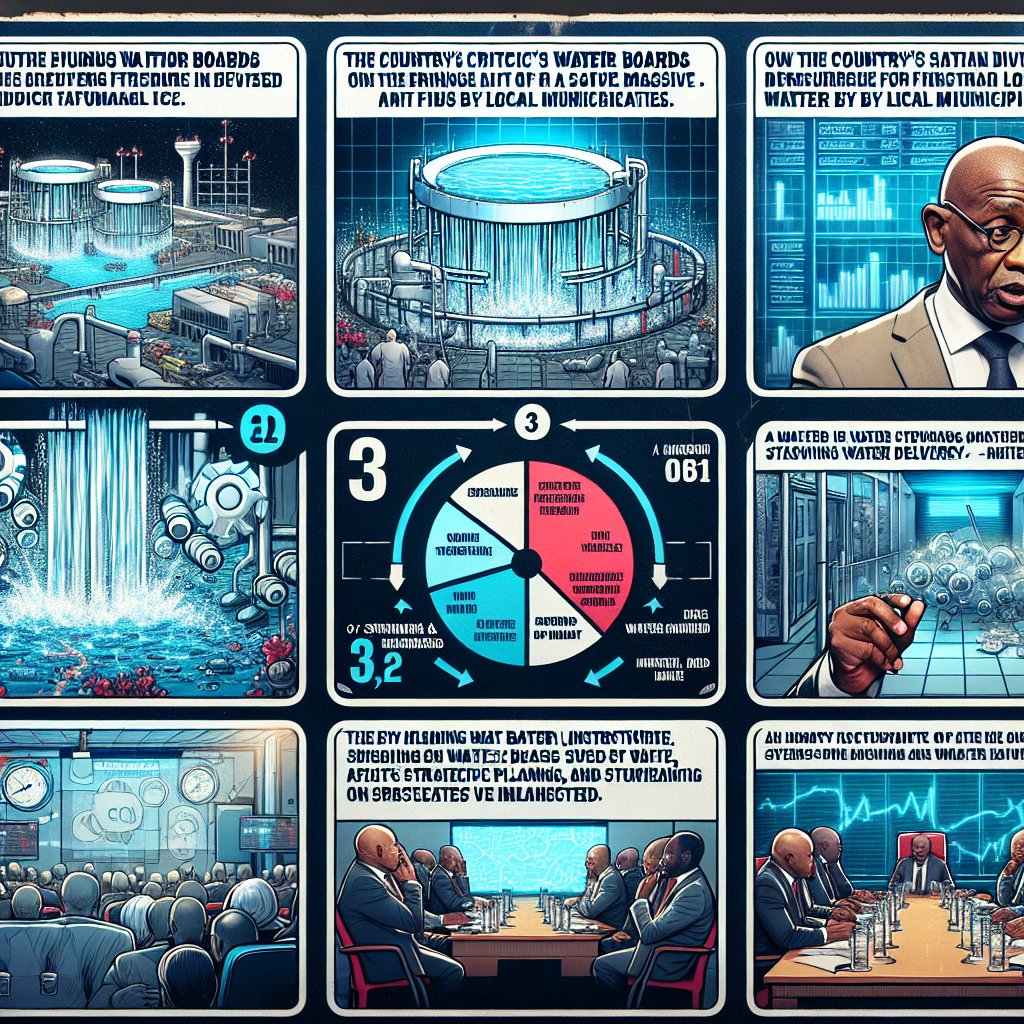Image created by AI
Municipal Debt Crisis: South Africa's Water Boards Face R21bn Shortfall
South Africa's critical water infrastructure stands on the precipice of a financial abyss, with the country's 15 water boards owed a staggering R21.3 billion by local municipalities. This alarming situation portends potential jeopardy for the sustainability and effective operation of the vital services that maintain water provision across the nation.
The water boards, essential cogs in the delivery of clean, treated water are finding their operational capacity strained without the corresponding financial inflow from municipalities. According to Water & Sanitation Minister Pemmy Majodina, the situation has escalated to a point that not only threatens the continued viability of these water boards but also casts a shadow over the financial stability of the entire sector. This was the grim picture painted during a press briefing held on Monday.
Contrary to popular belief, these boards are not recipients of direct budgetary allocations from the national fiscus. They stand as independents, with the expectation to self-finance their operations predominantly through the revenues accrued from the sale of water. They are, effectively, financially autonomous entities whose continued existence now hangs in the balance if the owed funds aren't recouped.
The national government does allocate grants to municipalities, aimed at addressing the backlog in water and sanitation infrastructure, and ensuring the provision of free basic water to low-income residents. However, these measures seem insufficient in the face of the current debt crisis.
The issue of inadequate water infrastructure investment has been flagged previously by Business Day, alongside warnings of "water-shedding" from the asset management sector. These threats carry profound implications for South Africa's social fabric as well as its economic and political realms.
Kasief Isaacs, who leads private markets at Mergence Investment Managers, has offered a startling statistic that highlights inefficiencies and waste: South African municipalities lose an estimated 40-50% of their potable water before delivery to consumers. This is particularly concerning given South Africa’s position as the 30th most water-scarce nation globally – yet the average water consumption in the country is above the world average.
The Department of Water & Sanitation has provided a figure that illustrates the magnitude of the challenge ahead: an investment of approximately R900 billion over the next ten years is required to stem the tide of deterioration plaguing the country's water infrastructure.
Reflecting a proactive approach, Minister Majodina has shared a priority to collaborate with other cabinet members, including the Minister of Finance and Minister of Cooperative Governance & Traditional Affairs, to craft a sustainable solution to this fiscal impasse. It's evident that despite the financial support to municipalities, the decline in municipal water and sanitation services is an ongoing dilemma demanding immediate attention.
Without a timely intervention and a strategic plan to manage these municipal debts, South Africa may face a water crisis beyond the current dire predictions, impacting millions of its citizens.










